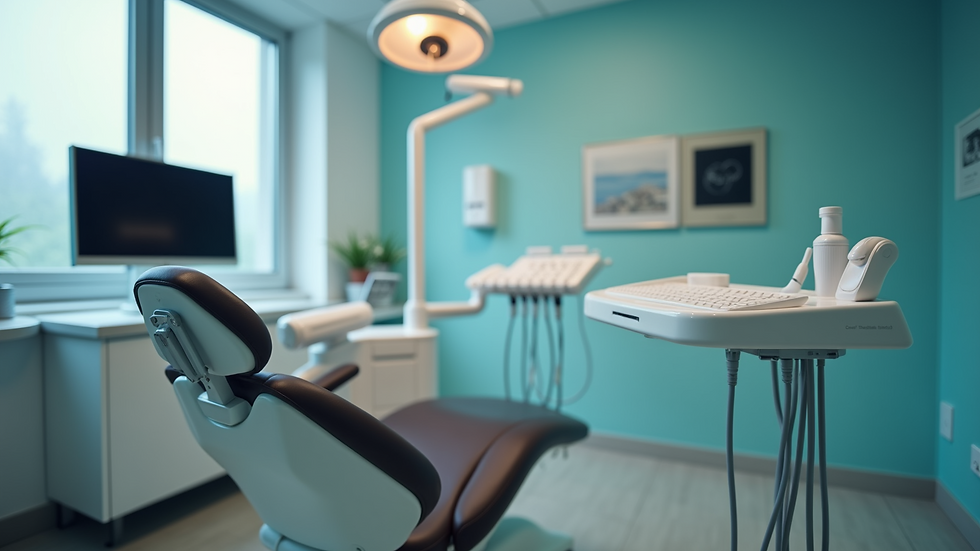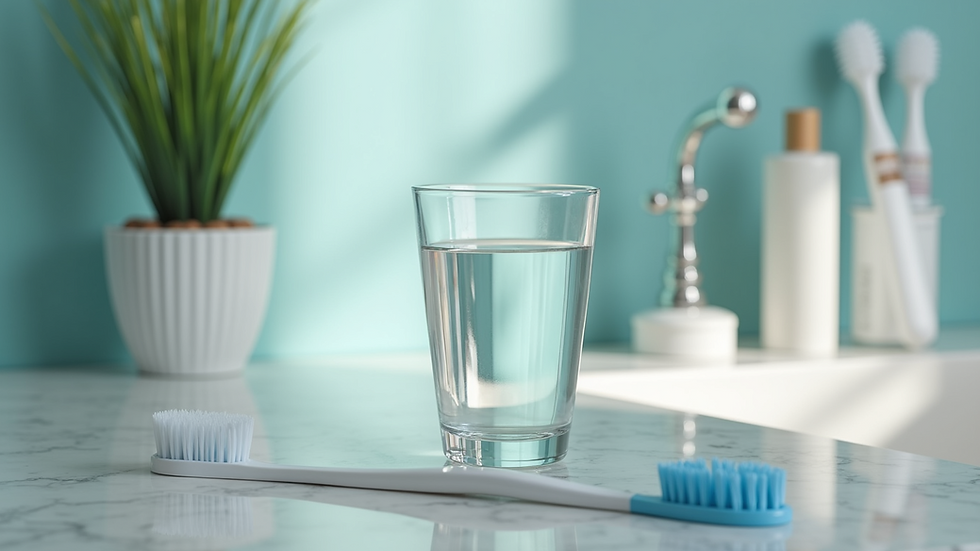Why Proper Oral Care is Essential for Overall Health
- Jane Peterson
- Sep 2, 2025
- 3 min read
Maintaining good oral hygiene is more than just having a bright smile. Proper oral care plays a crucial role in your overall health and well-being. Neglecting your teeth and gums can lead to serious health problems beyond cavities and bad breath. This article explores why oral care is essential, how it impacts your body, and practical steps you can take to improve your oral health.
The Importance of Oral Care for Your Health
Oral care is the foundation of a healthy body. The mouth is a gateway to the rest of the body, and poor oral hygiene can allow harmful bacteria to enter the bloodstream. This can contribute to various health issues such as heart disease, diabetes, respiratory infections, and even complications during pregnancy.
For example, gum disease (periodontitis) has been linked to an increased risk of heart attacks and strokes. The inflammation caused by gum infections can affect blood vessels and lead to cardiovascular problems. Similarly, people with diabetes often experience more severe gum disease, which can make blood sugar control more difficult.
Taking care of your teeth and gums helps prevent these complications. Brushing twice a day, flossing daily, and regular dental check-ups are simple yet effective ways to protect your overall health.

How Oral Care Affects Other Parts of the Body
The connection between oral health and systemic health is well documented. Here are some key ways oral care impacts other parts of the body:
Heart Health: Bacteria from infected gums can enter the bloodstream and cause inflammation in the arteries, increasing the risk of heart disease.
Diabetes Management: Gum disease can make it harder to control blood sugar levels, worsening diabetes symptoms.
Respiratory Health: Inhaling bacteria from the mouth can lead to lung infections such as pneumonia, especially in older adults.
Pregnancy Outcomes: Poor oral health has been linked to premature birth and low birth weight in babies.
Cognitive Function: Some studies suggest a link between gum disease and cognitive decline, including Alzheimer’s disease.
By maintaining good oral hygiene, you reduce the risk of these health problems and support your body's overall function.

What are the five basics of oral health?
Understanding the fundamentals of oral health can help you establish a strong routine. Here are the five basics everyone should follow:
Brushing Twice Daily
Use a fluoride toothpaste and brush for at least two minutes each time. This removes plaque and food particles that cause decay and gum disease.
Flossing Daily
Flossing cleans between teeth where a toothbrush cannot reach. It helps prevent gum inflammation and cavities between teeth.
Regular Dental Visits
Visit your dentist at least twice a year for professional cleanings and check-ups. Early detection of problems can save you from more serious issues.
Healthy Diet
Limit sugary snacks and drinks that feed harmful bacteria. Eat a balanced diet rich in fruits, vegetables, and calcium to strengthen teeth.
Avoid Tobacco Products
Smoking and chewing tobacco increase the risk of gum disease, oral cancer, and tooth loss.
Following these basics consistently will keep your mouth healthy and reduce the risk of systemic health problems.
Practical Tips to Improve Your Oral Care Routine
Improving your oral care routine does not have to be complicated. Here are some actionable recommendations:
Choose the Right Toothbrush: Use a soft-bristled brush that fits comfortably in your mouth. Replace it every three months or sooner if the bristles are frayed.
Use Mouthwash: An antimicrobial mouthwash can reduce bacteria and freshen breath. Look for one with fluoride for added protection.
Stay Hydrated: Drinking water helps wash away food particles and keeps saliva levels high. Saliva neutralises acids and protects teeth.
Limit Snacking: Frequent snacking increases acid attacks on your teeth. Try to eat meals at regular times and avoid sugary treats.
Learn Proper Brushing Technique: Hold your brush at a 45-degree angle to your gums and use gentle circular motions. Avoid harsh scrubbing that can damage enamel.
For those interested in deepening their knowledge, oral care training offers valuable guidance on best practices and techniques.

Taking Oral Care Seriously for Lifelong Health
Oral care is not just about aesthetics; it is a vital part of maintaining your overall health. By adopting good habits and understanding the connection between your mouth and body, you can prevent many health issues and enjoy a better quality of life.
Remember, small daily actions like brushing, flossing, and regular dental visits make a big difference. Prioritising oral health today can help you avoid costly and painful problems tomorrow. Make oral care a priority and support your body’s health from the inside out.




Comments